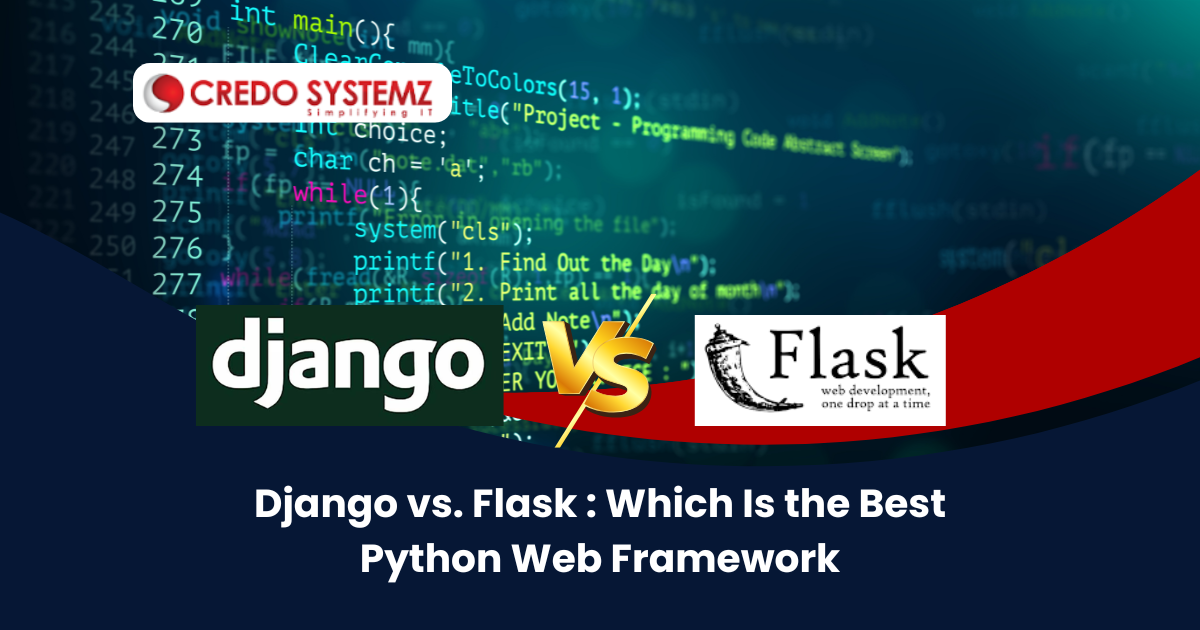
Introduction
In the programming sector, Python is one of the most popular programming languages for web development, AI, data science, and automation. The most widely used frameworks in Python are Django and Flask. In this article, let’s explore Django and Flask and their comparison to help choose the best framework based on business needs.
Overview of Django and Flask
Django
Django is a high-level, popular full-stack Python web framework with multiple built-in features that simplify web development. It is known for its “batteries-included” approach that facilitates rapid development and clean, pragmatic design. Built-in features include authentication, Object-Relational Mapper, admin panel, and security mechanisms.
Key Features of Django
- Built-in Object-Relational Mapper for database management
- Authentication and security features
- Admin interface for easy content management
- Scalable and maintainable architecture
- Supports large-scale applications
Flask
Flask is a micro-framework preferred for prototyping, developing APIs, and scalable applications. It provides the bare essentials for web development and is suitable for building small to medium-sized web applications. Flask allows developers to add only the components they need, offering more flexibility, simplicity, and lightweight nature.
Key Features of Flask
- Lightweight and minimalistic, providing essentials to build a web application
- Flexible and modular, allowing customized application design
- Jinja2 templating engine, extensible for database integration and authentication
- Built-in development server and debugger
- Suitable for microservices and smaller applications
Differences Between Django and Flask
| Feature | Django | Flask |
|---|---|---|
| Architecture | Monolithic, full-stack | Micro-framework, minimalistic |
| Flexibility | Less flexible, follows convention | More flexible, customizable |
| Performance | Slightly heavier due to built-in features | Lighter and faster for small projects |
| Use Case | Large-scale applications | Small applications, APIs, and microservices |
| Security | Built-in security features | Requires manual security implementations |
When to Choose Django
Django is suitable for large-scale applications that require built-in features. It can be preferred if you need:
- Robust security mechanisms
- Structured framework
- Admin panel for content management
When to Choose Flask
Flask is a better choice if you need a lightweight framework for a small project. It is suitable for developing APIs or microservices. Flask offers greater flexibility and control over components. It is efficient to experiment with different libraries and tools.
Conclusion
To conclude, both Django and Flask are essential and have their place in the Python ecosystem. Django is suitable if you need a full-fledged web framework with built-in features and scalability. On the other hand, Flask is a great choice for lightweight applications.
To master the skills of Python and its libraries, Credo Systemz is the best software training institute in Chennai that provides Python training in Chennai. Learn about Flask and Django and choose the right one depending on the project requirements, scalability needs, and development preferences.
Join Credo Systemz Software Courses in Chennai at Credo Systemz OMR, Credo Systemz Velachery to kick-start or uplift your career path.
